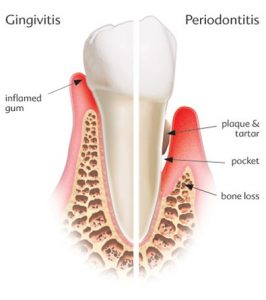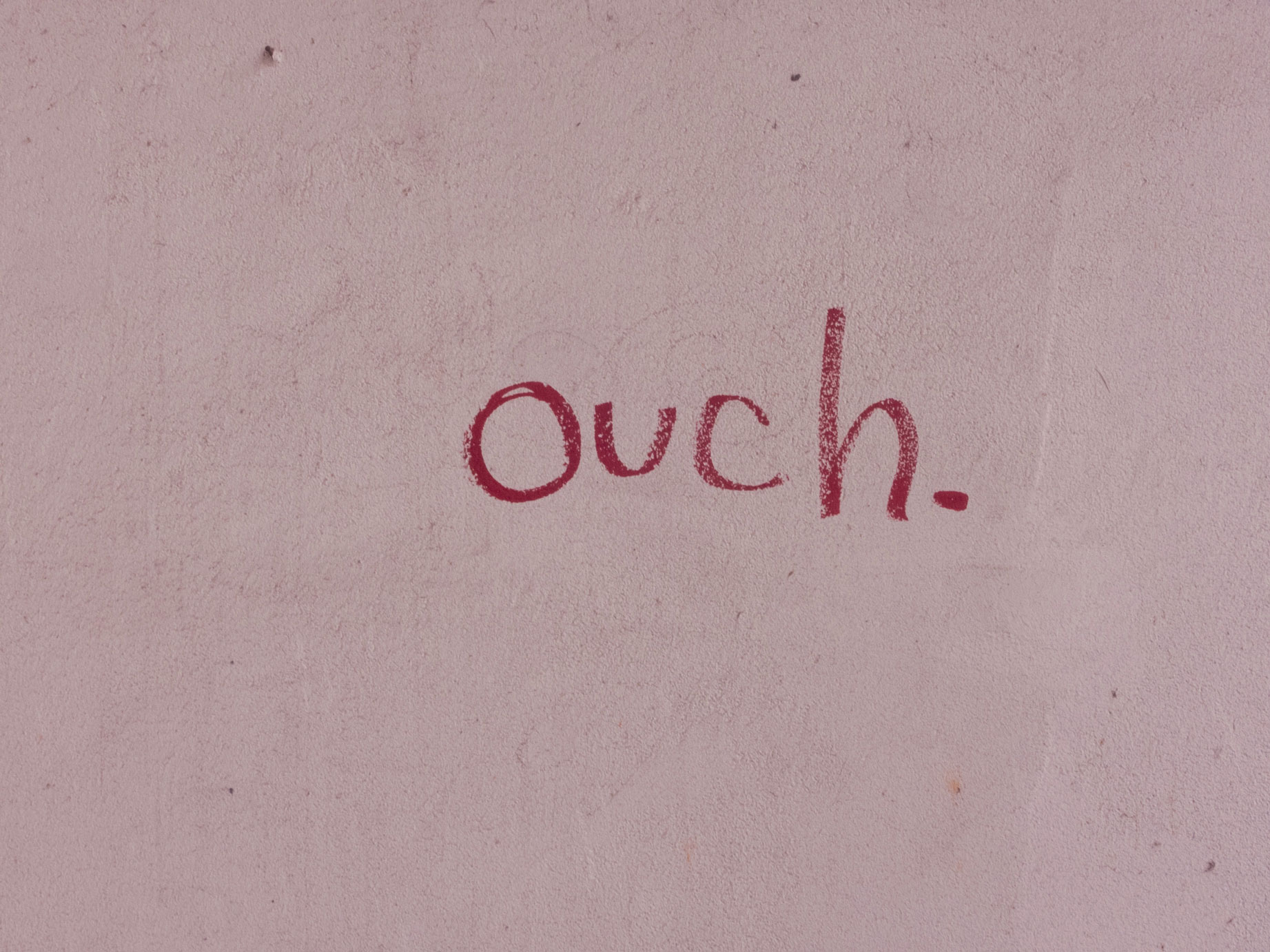Gum disease starts with bacteria (plaque & tartar) on your teeth that get under your gums. If the bacteria stay on your teeth for too long, layers of plaque (film) and tartar (hardened plaque) develop. This build-up leads to early gum disease, called gingivitis.
When gum disease gets worse, your gums can pull away from your teeth and form spaces that get infected. This is severe gum disease, also called periodontitis. The bone and tissue that hold your teeth in place can break down, and your teeth may loosen and need to be removed.
What are the signs and symptoms Gum Disease?
- Red or swollen gums
- Tender or bleeding gums
- Painful chewing
- Loose teeth
- Sensitive teeth
- Gums that have pulled away from your teeth

How Is Gum Disease Treated?
Regular cleaning by your hygienist, daily brushing and flossing can help treat early gum disease (gingivitis). More severe gum disease may require;
- Multiple appointments for deep cleaning below the gum line.
- Prescription mouth rinse or medicine.
- Surgery to remove tartar deep under the gums.
How do I prevent Gum Disease?
Proper brushing and flossing go a long way toward keeping gum disease under control. Using an antibacterial toothpaste or mouth rinse can kill bacteria and lessen the amount of plaque in your mouth. Removing dental plaque is the key to preventing gum disease and improving mouth health.
How else can I prevent Gum Disease?
Weight management and physical fitness both contribute to overall health and now we believe staying in shape may help lower your risk of developing gum disease. Since gum disease is related to other diseases, such as cardiovascular disease and diabetes, there is even more reason to take care of yourself through diet and exercise.
How Is Smoking Related to Gum Disease?
Smoking increases your risk of developing gum disease. Smoking weakens your body’s infection fighters (your immune system). This makes it harder to fight off a gum infection. Once you have gum damage, smoking also makes it harder for your gums to heal.
What does this mean for me if I am a smoker?
- You have twice the risk for gum disease compared with a non-smoker.
- The more cigarettes you smoke, the greater your risk for gum disease.
- Treatments for gum disease may not work as well for people who smoke.
What is the link between gum disease and diabetes?
Research suggests that people with diabetes are at higher risk of developing oral health problems, such as gingivitis (an early stage of gum disease) and periodontitis (serious gum disease). People with diabetes are at an increased risk of developing serious gum disease because they are generally more susceptible to bacterial infection, and have a decreased ability to fight bacteria that invade the gums.
If I have diabetes, am I at risk of developing dental problems?
If your blood glucose levels are poorly controlled, you are more likely to develop serious gum disease and lose more teeth than a non-diabetic. Like all infections, serious gum disease may be a factor in causing blood sugar to rise and may make diabetes harder to control.
Other oral problems associated to diabetes include: Oral thrush, an infection caused by fungus that grows in the mouth, and dry mouth which can cause soreness, ulcers, infections and cavities.
How can I help prevent dental problems associated with diabetes?
Firstly visit your GP to help you control your blood glucose level. Then, take good care of your teeth and gums, along with regular check-ups every six months. To control thrush, maintain good diabetic control, avoid smoking and, if you wear them, remove and clean dentures daily. Good blood glucose control can also help prevent or relieve a dry mouth caused by diabetes.
